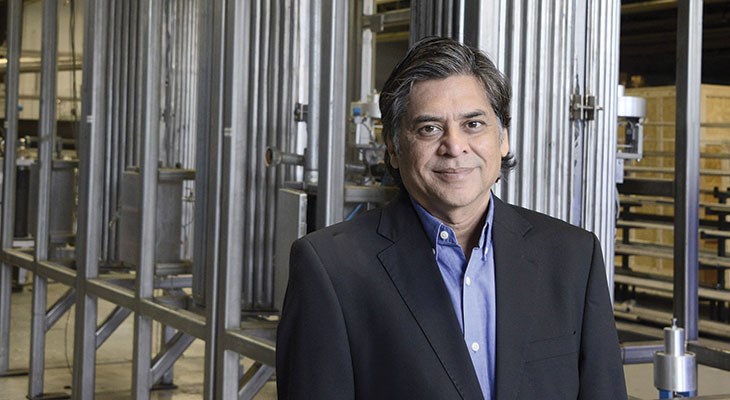Pennsylvania’s largest extractor of hemp, Thar Process, has grown almost five times over the past year and a half, jumping from 25 employees to 120. But with that kind of growth comes the need for more capital, CEO Lalit Chordia, Ph.D., says.
“To a large extent, we are self-funded, but we always take small amounts of money as we go along — and that’s what we did,” he says. “We raised $10 million to fund the company, to go forward, and we’ll probably do another raise of $25 million to $30 million by the end of the year.”
The mezzanine financing, which came from a carefully selected pool of investors, will be used for the expansion of Thar’s Pittsburgh facility and the creation of new facilities in Pueblo, Colorado, and New York City.
Chordia — who has developed technologies since 1990, including Thar Instruments and Thar Pharmaceutical, which sold in 2009 and 2016, respectively — shared his philosophies for raising capital and exiting a business.
Choosing your stakeholders
Thar Process’ growth has ramped up significantly the past four years. Chordia, who founded the manufacturer of CO2 extraction and purification equipment, says the acceleration came with the decision to not only process material but also sell equipment to customers who wanted to do it themselves.
But, he says, the differentiator has been the company’s longevity. It’s unusual in the hemp space, where many are on a get-rich-quick track.
“People don’t want to deal with a company that started two years ago because they thought this was a good idea,” Chordia says. “They want to deal with somebody who has been in the business for 25 years.”
Chordia takes a similar approach to finding investors.
“Especially in this business, there are a lot of people who just want to come in, make a couple bucks and get the hell out fast,” he says. “We do not want that. We really don’t want that.”
He’s told his investment adviser to look for strategics that have a long-term interest or family offices that are solid, diversified and in for the long haul. This tactic is more difficult and takes more time, but Chordia finds it worth it.
“We are in no hurry. It’s not as if we are short of money — that we need money desperately — so we take our time to get the right people,” he says.
Finding the right investors, those who have the same values that you do, is critical. For example, part of Thar Process’s philosophy is people, planet and profit, so Chordia and his team ensure potential stakeholders understand that upfront.
“Whether you’re playing the short game or the long game, it doesn’t really matter,” Chordia says. “You need to find the investors who will align with your goals, or vice versa. Otherwise, you’re going to end up in trouble.”
Selling strategies
One of the questions that Chordia often gets from potential investors is, “What is your end game?” He tells them that he wants to make money and create dividends for investors, but along the way, if there is a reasonable offer on the table, he would probably take it.
That offer, however, would need to include a buyer that would continue the company’s work.
“Money is always important, but it’s not the only reason why we do it,” Chordia says. “All of us have worked very hard to bring the company to this stage. We want to make sure it goes into the right hands. We are not looking for a company that will come in and shut it down and give us a lot of money. That’s not what we are looking for.”
When Thar Instruments, a supercritical fluid chromatography manufacturer, was sold to Waters Corp. a decade ago, some common friends had told Waters that it really needed to look at Thar.
In the case of Thar Pharmaceutical, Chordia says, it’s a part of the industry’s culture to talk about what you’re trying to do and what money you’re trying to raise at conferences. Then, somebody may come and say, “I may be interested in buying you.”
Chordia was planning to take the business public but instead sold it to the German pharmaceutical company Grünenthal.
With any sale, first you need to define your objectives, Chordia says.
Also, you can’t get caught up in the moment so that the buyer thinks you’re desperate to sell. With Thar Pharmaceutical, the option to go public or be sold allowed the company to negotiate a better price.
“You have to play coy, too, a little bit,” he says. “Otherwise, once somebody smells blood, they’ll just keep dropping the price for some reason or another. So do not be in a hurry to sell.”




